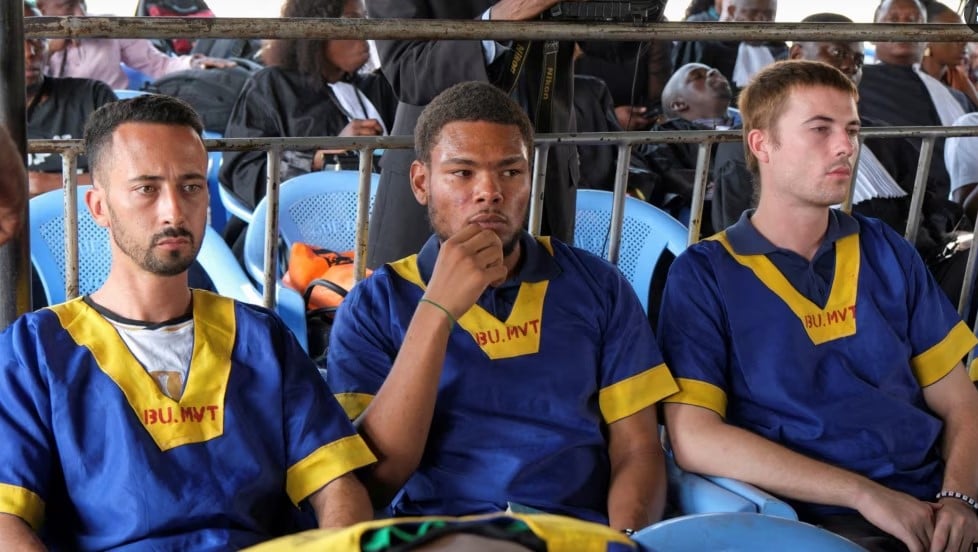Prime
We love dialogue but it hasn’t worked

What you need to know:
- Recently, when the citizens pressed their leaders for accountability and demanded the President to put an end to corruption by calling the Speaker of Parliament, to order where majority MPs are from his party, the National Resistance Movement, some regime loyalists and apologists were quick to call for dialogue
Every time our government has come under a continuous scrutiny and criticism over an issue of concern, they have quickly called for dialogue, a concept we love but hasn’t worked—at least in my humble view and observation.
Recently, when the citizens pressed their leaders for accountability and demanded the President to put an end to corruption by calling the Speaker of Parliament, to order where majority MPs are from his party, the National Resistance Movement, some regime loyalists and apologists were quick to call for dialogue.
Well, take it from me that dialogue cannot work in the fight against corruption. We have dialogued before about corruption with the President leading an anti-corruption walk on December 4, 2019 that climaxed with a conversation at Kololo Independence Grounds.
The late Speaker of Parliament, then deputy Speaker of Parliament, Jacob Olulanyah, is partly remembered for his scathing speech about and against corruption on that day. Five years down the road, nothing has changed. In any case, it has even worsened and his successor has been named in some of the biggest corruption scandals.
I have been led to think that those in power, especially the President, don’t believe in dialogue. As he fought a guerilla war that eventually ushered him into power, some comrades were engaged in dialogue as he continued to fight. And in the end, whatever the results of their dialogue were, he was determined to ignore them all and continue to fight.
The only time he believes in dialogue is when he is the one lecturing one group, usually about Pan Africanism and the history that doesn’t appeal to most. A case in point is, while I I’m not privy to the particulars of the matter, I have been led to believe that it’s through dialogue at some level that led to the release of then jailed Rwenzururu Kingdom leader Charles Wesley Mumbere.
Dialogue only works for them when they have a boot on your neck, when they have all the odds in their favour. But even when that has been the case, they have never come to the table to listen. They come to hear, lecture and dismiss.
Once again, we have tried dialogue before and it hasn’t really worked. Political parties through Interparty Organisation for Dialogue (IPOD), though not believed in by all, have sat across tables in expensive hotels furnished with air conditioners, enjoyed expensive coffee and food, and deliberated on a number of issues that have not been implemented beyond shaking hands and exchanging a few gifts like when Mr Norbert Mao gifted President Museveni a green cap.
But the issues deliberated on like electoral reforms, leaving political parties to go about their business as the law permits them have all been cries that have fallen on deaf ears.
Mr Mao engaged in dialogue with the National Resistance Movement (NRM) but the only achievements he got where personal to him and those that carried his briefcase to the different meetings. Democratic Party (DP) Secretary General Gerald Siranda ended up with an endorsement to the East African Legislative Assembly while his boss settled for being appointed minister for Justice, and perhaps generous contributions from NRM’s ‘class B’ leaders for his wedding as he married Ms Beatrice Kayanja.
But as a nation, as DP, as change seeking agents, as advocates for the rule of law, what do we have to show for it.
Personally, I used to hold Mr Mao in high regard, but even as minister for Justice, he didn’t condemn the illegal arrest and detention of the July 23 march to Parliament protesters.
Whether he is clandestinely cooking bigger fish, which we will never know but from the visible signs to us, and his recent declarations that their contractual marriage of convenience with NRM will soon come to an end leaves us empty handed to believe that dialogue can work.
At the height of the March to Parliament protests, Col Edith Nakalema purported to have met a few self-proclaimed heads or representatives for the protesters, and in a larger part the aggrieved Ugandans clamouring for accountability, for a dialogue whose deliberations were never revealed nor the outcomes.
All it turned out to be was free cups of coffee shared, a photo moment that some construed for betrayal and if the Colonel was as generous enough as his boss has been reported to be, some few coins for transport might have been disbursed.
Do we even need to first sit on a round table for government to task Afande Tom Magambo to investigate the misuse of funds at Parliament? Just because money is in the budget doesn’t mean we should then find reason to spend it on whatever nonsensical thing we may deem fit when it doesn’t serve Ugandans but only individuals.
For example, in what world do you have a Speaker of Parliament donating billions in corporate social responsibility activities when the intensive care unit of a national referral hospital cannot fully function due to a lack of sufficient funds, when all human organ transplant activities at Mulago hospital were suspended due to the government’s failure to provide Shs5 billion for the functionalisation of the Human Organ Transplant Council.
So, until our leaders show a willingness to listen and act when the citizen speak on matters that impact their everyday life, we can never have meaningful dialogue on even bigger issues like a peaceful transfer of power from one president to another.
Robert Kayindi




